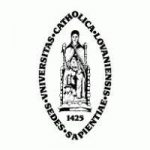项目介绍
According to the European Commission, passenger transport is projected to increase 42% by 2050, and freight transport up to 60%. Needless to say, this puts an enormous burden on transport networks and our environment. Compared to other modes of transport – which often face congestion and capacity problems – inland waterway transport is characterised by reliability, energy efficiency and a capacity for increased use. However, this will not happen unless we can make inland waterways economically competitive. With crew costs accounting for 60% of the total cost, autonomous inland vessels represent an exciting disruptive technology. AUTOBarge is about seizing an opportunity. Europe’s waterways are a vital resource that we have underused for most of the last century. Now, with the possibility for mass autonomous shipping, these canals and rivers offer a network that we can exploit without damaging the environment to the extent of new roads and aircraft runways. But to be able to do this we need new people with new skills. These innovators must be experts in remote control, monitoring, smart logistics, regulatory aspects, and many more areas associated with the complexity of inland shipping. The early-stage researchers recruited to AUTObarge will begin this transport revolution. This particular ESR-position will be executed with the M-Group at KU Leuven Bruges Campus.Website unit
Project
This early-stage researcher will aim to develop a generic safety-case structure to assure the run-time safety of remotely operated or fully autonomous inland vessels. For society to fully accept and trust the use and operation of unmanned inland vessels, one must be able to provide convincing confidence and argumentation about these vessels’ trustworthiness. However, the challenges that come along with the safety assurance of unmanned vessels should not be underestimated. First, current standards assume that there is a human in the loop at every moment and that he/she can take over immediately in case of emergency. For remotely operated vessels, one operator will be monitoring multiple vessels at the same time, leading to divided attention, and for fully autonomous vessels, a human operator will even be absent. Third, the operation of unmanned vessels heavily depends on sensors, which unavoidably have their limitations. To overcome these challenges, this early-stage researcher will integrate the principles of Functional Safety (i.e. avoid unreasonable risk due to hazards caused by randomly failing components or hazardous systematic design errors), Safety-of-the-Intended-Function (i.e. avoid unsafe behavior caused by sensors being used beyond their capabilities) and Safe Nominal Behavior (i.e. will the system produce safe behavior in all situations?) into a generic reasoning framework about the safety of unmanned
Profile
Career stage: Early Stage Researcher (ESR) or 0-4 yrs (Post Graduate)
Eligibility Criteria:
- Early-stage researchers (ESR): those who are, at the time of recruitment by the host, in the first four years (full-time equivalent) of their research careers. This is measured from the date when they obtained the degree which formally entitles them to embark on a doctorate, either in the country in which the degree was obtained or in the country in which the research training is provided, irrespective of whether or not a doctorate was envisaged.
- Conditions of international mobility of researchers: researchers are required to undertake trans-national mobility (i.e. move from one country to another) when taking up the appointment. At the time of selection by the host organisation, researchers must not have resided or carried out their main activity (work, studies, etc.) in the country of their host organisation for more than 12 months in the 3 years immediately prior to their recruitment. Short stays, such as holidays, are not taken into account.
- English language: Network fellows (ESRs) must demonstrate that their ability to understand and express themselves in both written and spoken English is sufficiently high for them to derive the full benefit from the network training.
Offer
The successful candidates will receive an attractive salary in accordance with the MSCA regulations for Early Stage Researchers. The exact (net) salary will be confirmed upon appointment and is dependent on local tax regulations and on the country correction factor (to allow for the difference in cost of living in different EU Member States). The salary includes a living allowance, a mobility allowance and a family allowance (if married). The guaranteed PhD funding is for 36 months (i.e. EC funding, additional funding is possible, depending on the local Supervisor, and in accordance with the regular PhD time in the country of origin). In addition to their individual scientific projects, all fellows will benefit from further continuing education, which includes internships and secondments, a variety of training modules as well as transferable skills courses and active participation in workshops and conferences.
相关项目推荐
KD博士实时收录全球顶尖院校的博士项目,总有一个项目等着你!




